How do Sleep Disorders Affect Daily Life?

Sleep is vital for overall health and daily functioning. It restores energy, supports mental clarity, and keeps our bodies in balance.
However, sleep disorders can disrupt this essential process, leading to a cascade of problems. Conditions like insomnia, sleep apnea, and narcolepsy interfere with our ability to rest properly, affecting everything from physical health to social interactions.
This blog will explore how sleep disorders impact physical and mental health, affect social and work life, and provide strategies for coping and treatment.
Understanding Sleep Disorders
Conditions known as sleep disorders impact the quantity, timing, and quality of sleep, which can cause problems or impairment during the day. Common types include:
- Insomnia: Insufficient sleep due to difficulty falling or remaining asleep.
- Sleep Apnea: An unhealthy disorder that causes breathing to stop and start during the night, frequently leading to loud snoring and severe daytime lethargy.
- Restless Legs Syndrome (RLS): An overwhelming urge to move the legs, usually accompanied by uncomfortable sensations, disrupting sleep.
- Narcolepsy: A neurological condition marked by extreme drowsiness during the day and unexpected episodes of sleep, occasionally accompanied by cataplexy, an abrupt loss of muscle tone.
The Impact of Sleep Disorders on Physical Health
Sleep disorders can significantly affect physical health. Insufficient or poor-quality sleep is linked to several serious health conditions. People with chronic sleep problems face an increased risk of heart disease, diabetes, and obesity. Sleep is essential for metabolic regulation and cardiovascular health. When disrupted, the body’s ability to regulate glucose and blood pressure can deteriorate, raising the risk of these conditions.
Moreover, another effect of sleep disturbances is a decreased immune system. Quality sleep is crucial for immune function. Lack of it impairs the body’s ability to fend off illnesses and recover from infections. Chronic sleep deprivation can lead to persistent inflammation, making it harder for the body to heal and maintain overall health.
Sleep disorders also often exacerbate chronic pain. A vicious cycle of pain and poor sleep can result from conditions like sleep apnea and insomnia, which can make it more difficult to manage discomfort.
The Effect of Sleep Disorders on Mental Health
The connection between sleep and mental health is profound. Sleep disorders can lead to or worsen mental health issues, such as depression and anxiety. People who get little sleep are more prone to stress and mood swings because it impairs their ability to regulate their emotions and cognitive function.
Chronic sleep problems are closely linked to depression. Insomnia and other sleep disorders can trigger depressive symptoms, which in turn, worsen sleep issues, creating a detrimental cycle. Similarly, sleep disorders can intensify anxiety, making it difficult to manage daily stressors effectively.
Cognitive functions are also affected. Sleep deprivation impairs concentration, memory, and decision-making abilities. Individuals may struggle with focusing on tasks, retaining information, and making sound judgments, impacting both personal and professional aspects of life.
Social and Emotional Consequences
Sleep disorders can strain relationships and social interactions. Individuals with sleep issues often experience irritability and moodiness, which can lead to conflicts with family, friends, and colleagues. Fatigue from poor sleep can also lead to withdrawal from social activities, reducing opportunities for meaningful engagement and support.
Emotional regulation is compromised as well. It may be difficult for people with sleep disorders to control their stress levels and keep a stable mood. This can further isolate them from their social circles, impacting their overall quality of life and relationships.
Sleep Disorders and Work/School Performance
Sleep disorders can severely impact work and academic performance. Poor sleep often leads to absenteeism, where individuals miss work or school due to excessive tiredness.
Additionally, presenteeism, where one is physically present but not fully productive, is common. Sleep issues can affect decision-making, creativity, and problem-solving abilities, crucial skills in any professional or academic setting.
Lack of sleep diminishes cognitive functions, making it harder to perform tasks efficiently and meet deadlines. This might worsen stress and frustration by resulting in poorer academic and professional performance.
Coping Strategies and Treatment Options
Addressing sleep disorders involves various strategies. Behavioral therapies, such as Cognitive Behavioral Therapy for Insomnia (CBT-I), can help manage and improve sleep patterns. Medical treatments and medications might be necessary for conditions like sleep apnea or severe insomnia, but should always be prescribed and monitored by a healthcare provider.
Lifestyle changes are also effective. Improving sleep hygiene by establishing a consistent sleep schedule, creating a restful environment, and avoiding stimulants before bed can enhance sleep quality. Incorporating relaxation techniques, such as meditation or deep breathing, can also aid in managing stress and promoting better sleep.
Seeking professional help is crucial if sleep problems persist. A medical practitioner can offer tailored advice and treatment plans to address particular issues and improve overall health.
Sleep disorders have a profound impact on daily life, affecting physical health, mental well-being, social interactions, and work performance. Maintaining general health and enhancing the quality of life requires acknowledging and resolving these problems. If you suspect you have a sleep disorder, consider seeking professional help to explore effective treatments and strategies for better sleep. Taking action now can lead to significant improvements in your daily functioning and overall health.




